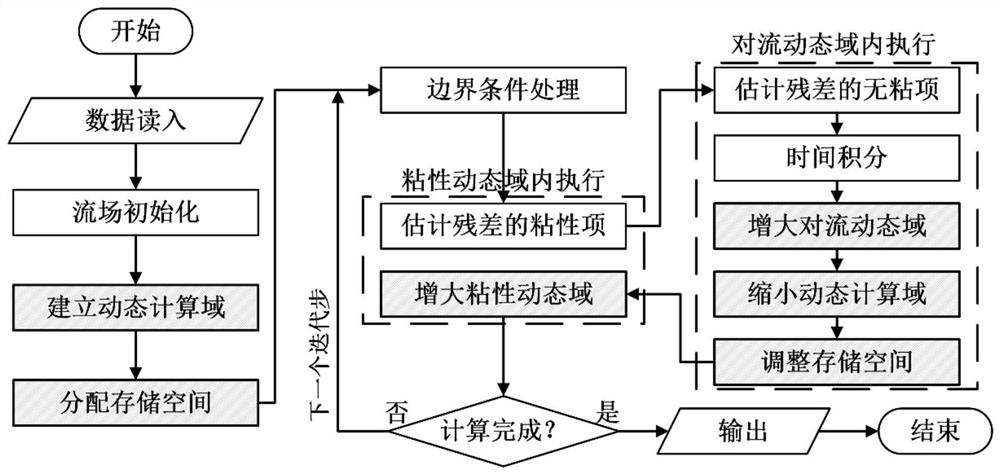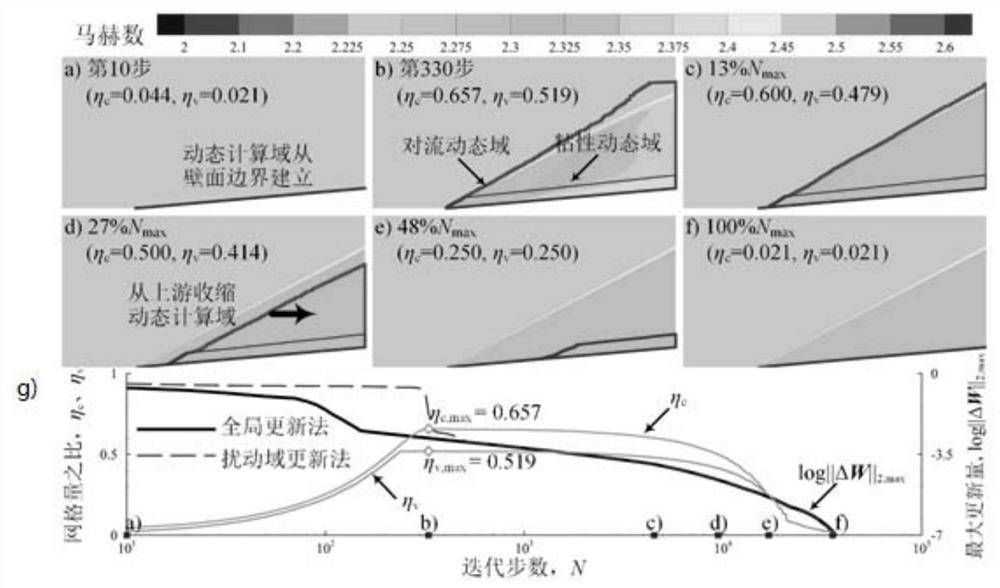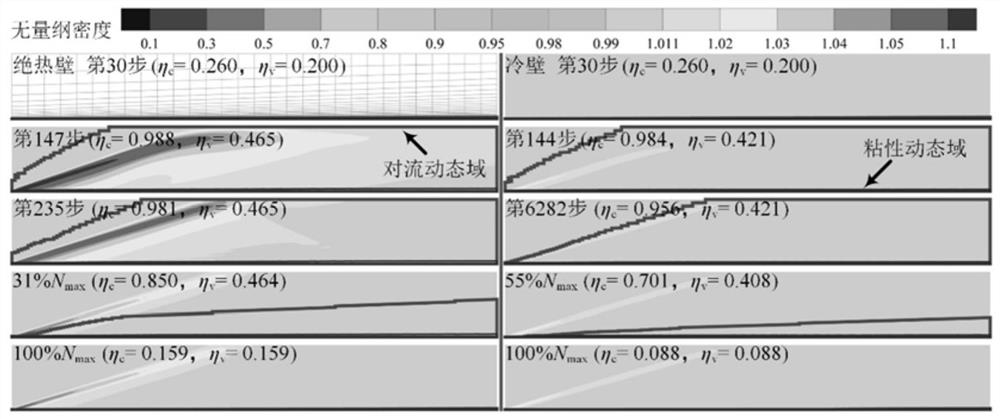Calculation method for partitioned perturbation domain update of steady viscous compressible flow around aircraft
An aircraft, viscous technology, applied in the field of partition disturbance domain update calculation, can solve the problem of inviscid-viscous partition partition difficulty, save storage space and improve computing efficiency.
- Summary
- Abstract
- Description
- Claims
- Application Information
AI Technical Summary
Problems solved by technology
Method used
Image
Examples
Embodiment 1
[0220] Simulate the problem of Mach number 2.5 laminar flow through 5° wedge angle, figure 2 It shows the evolution process of the convective and viscous dynamic domains under the two operations of adding and deleting units in the partition disturbance domain update calculation method; in the figure η c , η v Respectively represent the ratio of the grid quantity of the convective, viscous dynamic domain and the preset computational domain, N max Indicates the number of iterations required for solution convergence. In this embodiment, the flow field is initialized with flow conditions, and the disturbance is generated from the wall boundary. In the first step of the solution, the initial convective dynamic domain includes the 10-layer adjacent cells of the wall, and the initial viscous dynamic domain includes the adjacent cells of the wall. In the early stage of the solution, the two types of dynamic domains are gradually expanded by adding unit operations. At step 330, as...
Embodiment 2
[0223] In the case of adiabatic wall and cold wall, the Mach number is 3.5 and the Reynolds number is 5.83×10 6 The problem of laminar flow through a flat plate is simulated, image 3 In the case of two kinds of wall surfaces, the calculation method of the partition disturbance domain update of the present invention is at ε a,c =10 -5 , ε a,v =10 -2 , ε d =10 -7 The dynamic domain range determined at the time. In the two wall cases, the convective dynamic domain and the viscous dynamic domain are established according to the wall boundary, and gradually expand from the lower boundary of the preset calculation domain to the upper boundary in the early stage of the solution, as shown in image 3 line 1 of the . image 3 The second row of , compares the maximum convective dynamic domains of the two wall cases. Compared with the adiabatic wall case, the boundary layer thickness of the cold wall case is smaller and the leading edge shock wave strength is smaller, so the η of...
Embodiment 3
[0226] For NACA0012 airfoil, the incoming flow Mach number is 0.5, and the incoming flow Reynolds number is 10 4 , 0° angle of attack for simulation, Figure 4 The update calculation method of the partition perturbation domain is given, using the 3rd-order R-K explicit and LU-SGS implicit two time-advancing schemes at ε a,c =10 -5 , ε a,v =10 -2 , ε d =10 -7 Time dynamic domain evolution process. Early in the solution, the convective and viscous dynamic domains grow together with the disturbance propagation from the wall boundary, as in step 173 for the 3rd order R-K scheme. In the case of subsonic speed, the convective dynamic domain will grow to the entire preset calculation domain, while the maximum viscous dynamic domain still only includes a small part of the preset calculation domain, η v The peak values are 0.692 and 0.673 for the explicit and implicit formats, respectively. The lower the Reynolds number, the thicker the boundary layer. Thus, the viscous dyna...
PUM
 Login to View More
Login to View More Abstract
Description
Claims
Application Information
 Login to View More
Login to View More - R&D
- Intellectual Property
- Life Sciences
- Materials
- Tech Scout
- Unparalleled Data Quality
- Higher Quality Content
- 60% Fewer Hallucinations
Browse by: Latest US Patents, China's latest patents, Technical Efficacy Thesaurus, Application Domain, Technology Topic, Popular Technical Reports.
© 2025 PatSnap. All rights reserved.Legal|Privacy policy|Modern Slavery Act Transparency Statement|Sitemap|About US| Contact US: help@patsnap.com



